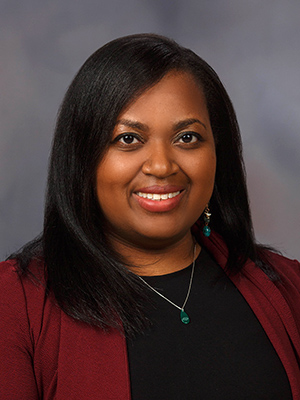Dr. Jasmine Miller-Kleinhenz receives NIH grant to explore racial disparities in aggressive breast cancer

Dr. Jasmine Miller-Kleinhenz, assistant professor in the John D. Bower School of Population Health, was recently awarded an NCI R00 grant to fund research aimed at exploring the complex relationship between socio-structural factors and tumor biology in the case of triple negative breast cancer (TNBC). The grant, titled “Investigating Socio-Structural Determinants of Health and the Tumor Epigenome to Understand the Etiology of Racial Disparities in Breast Cancer,” will support Miller-Kleinhenz’s effort to address one of the most critical concerns in cancer health disparities.
“Triple negative breast cancer is known for its aggressive nature and is a leading concern in oncology due to its high incidence and poor prognosis. Affecting approximately 20% of breast cancer patients, TNBC is disproportionately diagnosed in young, Black women, with Mississippi reporting some of the highest incidence rates in the country,” said Miller-Kleinhenz. “This research seeks to bridge the gap between socio-structural determinants—such as historical neighborhood redlining—and biological mechanisms, specifically epigenetic changes and oncogenic signaling pathways that contribute to TNBC tumorigenesis.”
Miller-Kleinhenz’s research will explore how historical and social factors impact cancer at a biological level. Specifically, she will examine how past practices like neighborhood redlining, where certain areas were denied investment, may increase the risk of TNBC by causing changes in the DNA of tumors. This innovative approach seeks to reveal the underlying causes of racial disparities in cancer rates and to create targeted strategies to address these inequities.
“This grant represents a pivotal opportunity to explore how socio-structural determinants impact cancer biology and health disparities,” said Miller-Kleinhenz. “Mississippi has one of the highest incidence rates of TNBC in the US, particularly among Black women. The need for this research here is critical, and the potential for significant impact is immense. I chose to join UMMC precisely because of this need and the unique opportunities to make a difference.”


